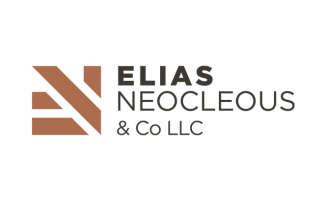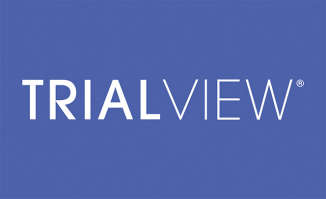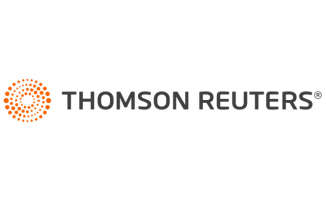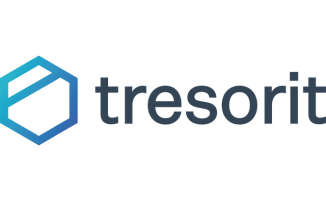New research has revealed that law firms are increasingly shifting to hybrid working and cloud technology is underpinning this move
This article will look at some of the key findings to emerge from a new benchmarking study, undertaken by Legal IT Insider in association with Philips, that interviewed a range of leading law firms on their hybrid working plans and cloud strategies. It will also outline how the Philips SpeechLive cloud-based dictation and transcription workflow solution can help to address specific issues associated with the hybrid work approach, not least the concerns associated with cyber security.
Moving to the cloud
Following on from the global pandemic we have seen the rapid growth of the hybrid work model where employees have the flexibility to work a portion of their week from home, with the remainder of the time spent in their office.
Law firms have certainly embraced this model, recognising its growing popularity and the expectation of staff to have greater flexibility in where they work. In fact, the study indicates that 88% of respondents now have some form of policy in place to support it, while only 2% are making it mandatory for their staff to be back in the office full-time.
The result is that law firms are increasingly looking for new opportunities to support lawyers more effectively, by enhancing collaboration, streamlining processes and allowing for device and location-independent mobile working. All of which are major strengths of cloud technologies.
It’s no surprise, therefore, that the study results show 68% of respondents confirming that more than half of their core systems are now cloud-based. In contrast only 9% are still using predominantly on-premises solutions.
Another significant finding is that 79% of the respondents already have a cloud-first strategy. This is an approach to cloud computing that involves the adoption of cloud technologies for all new applications, platforms and infrastructure. In effect it prioritises cloud computing services over more traditional on-premises IT systems.
The growing shift to the cloud is also emphasised in terms of the overall strategy adopted, with 12% of respondents reporting that they are already entirely cloud-based. What’s more, a further 23% plan to be entirely cloud-based within 18 months, while 19% intend to follow suit in three years.
And cloud-based solutions have played an important part in helping legal firms to support hybrid and remote workers more effectively. For example, one of the most significant changes that law firms have seen in adapting to hybrid working has been the increasing reliance on Microsoft 365, with 56% of respondents having recently moved to this software as a service (SaaS) product.
Another commonly reported change has been the surge in adoption of eSignature usage (cited by 72% of respondents). This use of IT to authenticate the signatory and certify the integrity of the document is mobile-friendly and secure, and thus ideally suited for a hybrid work environment where colleagues and business partners will often be working remotely.
SpeechLive and the cloud
Streamlining document production processes and enhancing collaboration are major challenges for all law firms. Philips SpeechLive is a cloud-based solution that is suitable for businesses of all sizes and is ideally placed to meet these challenges. It allows legal professionals to use its advanced speech recognition and workflow capabilities to create and route documents through the production processes. Document creation can be carried out:
- in the office via a microphone and browser-based solution; or
- on the go using a portable voice recorder, or a mobile app which supports both Android and iOS devices.
Front-end speech recognition can also be used to directly insert text into existing software applications, such as Microsoft Word, Outlook or CRM systems, along with case management systems.
SpeechLive’s AI-based engine offers up to 99% accuracy, while voice commands can be used to insert paragraphs, punctuation marks and special characters, all contributing to speedy and effective speech-to-text conversion.
Uptime reliability can be a concern with some cloud-based solutions due to issues such as power failures or network outages. With this in mind, Philips has partnered with Microsoft Azure as its hosting provider. Azure promises a 99.9% uptime guarantee, 24 hours a day, seven days a week and 365 days a year.
Security findings
Inevitably much of the information generated by legal firms will contain personal information that is sensitive in nature. Ensuring such information is safe from the prying eyes of online hackers is paramount. Security, therefore, is a crucial issue for both existing and potential users of cloud-based solutions.
In the past a range of concerns were often expressed by both law firms and their clients regarding the security of documents stored in the cloud, particularly public clouds.
However, results from the study demonstrate a growing confidence in the levels of security now provided by cloud service providers. It found that 73% of respondents believe none of their clients are unhappy or uncomfortable with their data being stored in the cloud, while a further 21% expressed only minor reservations.
Reinforcing the above point, 74% of respondents believe that cloud solutions are now more secure than their on-premises counterparts.
This appears to have resulted in a change of emphasis in terms of the security-related concerns expressed by the clients of law firms – they are less concerned about where the data is hosted, and more about how it is actually protected. One respondent commented ‘It is impossible for on-premises to be as secure as the cloud. Security technology requires a level of scale and investment that cannot be achieved on premises.’
SpeechLive and security
There is a growing confidence that cloud service providers can offer extremely high levels of security, not least because their businesses and reputations depend on it.
This is certainly the case with SpeechLive. For example, the use of multi-factor authentication (MFA) adds an extra level of security since it requires two or more distinct factors to validate a user’s identity, rather than relying on just a simple username and password combination.
In addition, encryption techniques are employed to create a layered defence that makes it more difficult for an unauthorised person to gain access to audio recordings and file attachments. All types of audio files are always created, sent and stored with industry standard AES 256-bit encryption.
Importantly, the Azure hosting service also adheres to international standards for security and compliance. For example, the service is ‘GDPR ready’, meaning it fully complies with the European Union (EU)’s General Data Protection Regulation which seeks to ensure that EU residents’ personal data is secure, accessible, used appropriately and documented with consent.
In addition, Azure is certified for the ISO/IEC 27000 family of information security standards, in particular the mainstay of the series (ISO 27001) which sets out the specifications for an information security management system.
Azure also continuously performs penetration testing and work on threat detection and prevention in areas such as unauthorised intrusion and denial of service.
Five key takeaways
- The appetite among staff within the legal sector for flexible and hybrid working has grown significantly, with the majority now expecting this work model to be made available to them.
- Hybrid working is here to stay and the requirement to support it has accelerated transformation initiatives.
- Law firms are increasingly choosing a cloud-first strategy where cloud technologies are adopted for all new applications, platforms and infrastructure.
- Cloud technologies provide new opportunities for supporting lawyers more effectively.
- Speech-to-text, workflow and collaboration solutions have key roles to play in streamlining processes and enabling lawyers to achieve greater efficiencies.
Reference
Hybrid Working & Law Firms’ Long-Term Cloud Journey
Cloud Report 2023 by Belinda Hermans – Flipsnack
For more information, please contact:
Ryan Braddock, VP and sales director UK and Ireland
Speech Processing Solutions UK Ltd
7 The Courtyards
Wyncolls Road
Severalls Park
Colchester CO4 9PE
T: 07825 751859
E: ryan.braddock@speech.com
www.speechlive.com
















